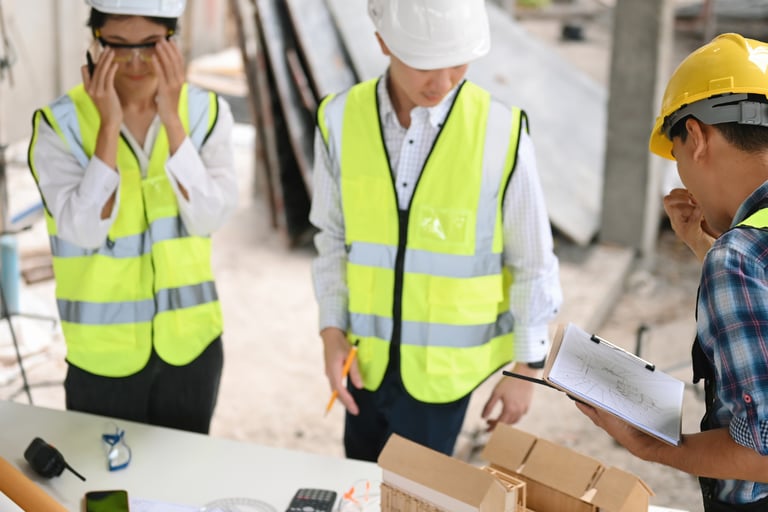How to Select the Right Property in India?
how to select a right property in India?, Acquiring property in India represents a significant financial and emotional commitment. Whether it is your initial residence, an investment property, or a commercial establishment, making an informed decision necessitates thorough planning. From the choice of location to legal verifications, the following is a detailed guide to assist you in selecting the right property in India.
flixahdeveloperspvtltd.com
7/13/20253 min read


How to Select the Right Property in India?:
A Comprehensive Guide
how to select a right property in India?, Acquiring property in India represents a significant financial and emotional commitment. Whether it is your initial residence, an investment property, or a commercial establishment, making an informed decision necessitates thorough planning. From the choice of location to legal verifications, the following is a detailed guide to assist you in selecting the right property in India.
Step 1: Clarify Your Intentions
The initial step involves comprehending the reasons behind your property purchase. Your needs will differ depending on:
Residential Use: Acquiring a home for personal habitation.
Investment Purpose: Purchasing property to generate rental income or benefit from future value appreciation.
Commercial Use: For business or office requirements.
Clarifying your goals aids in refining the type of property, its location, and your budget.
Step 2: Establish a Practical Budget
Understanding your financial capacity is essential. Take into account:
Down Payment: Typically 10–20% of the property's market value.
Loan Eligibility: Assess the amount of home loan you can secure based on your income and credit rating.
Additional Expenses: Registration fees, stamp duty, brokerage, GST, maintenance costs, and interior expenses.
Carefully plan your finances to prevent future difficulties. Always maintain an emergency fund that is distinct from your property budget.
Step 3: Investigate the Location
Location is a critical factor that significantly impacts property value, rental yield, and overall quality of life. Consider the following aspects:
Connectivity: The closeness to public transport, highways, airports, and metro stations.
Social Infrastructure: Availability of schools, hospitals, shopping centers, and recreational areas.
Development Potential: Regions with forthcoming infrastructure projects generally experience faster appreciation.
Safety and Environment: Assess the crime rate, pollution levels, and presence of greenery.
Emerging suburbs in metropolitan areas frequently offer better value for money in comparison to city centers.
Step 4: Select the Appropriate Property Type
You will encounter a variety of property options, including:
Apartments/Flats: The most prevalent choice for urban residents.
Independent Houses/Villas: Offer greater privacy and space, though they require more maintenance.
Plots/Land: Present long-term investment opportunities but necessitate more legal verification.
Commercial Properties: Suitable for business purposes or generating rental income.
Align the property type with your intended use and budget.
Step 5: Confirm the Builder and Project Credentials
When purchasing from a builder, particularly for under-construction projects, it is essential to verify:
Builder’s Reputation: Review past projects, delivery history, and customer feedback.
RERA Registration: All residential projects must be registered with RERA (Real Estate Regulatory Authority) to ensure legal compliance.
Project Approvals: Verify sanctioned plans, environmental clearances, and financial arrangements.
Construction Quality: Visit the site and inspect sample flats or previous projects to assess build quality.
Step 6: Perform Legal Due Diligence
Before making a final decision, ensure the property is legally sound. Consult a property lawyer if necessary. Verify the following:
Title Deed: Confirms the seller's ownership.
Encumbrance Certificate: Ensures there are no outstanding loans or legal issues.
Occupancy Certificate: Issued by local authorities after confirming adherence to construction norms.
Completion Certificate: Crucial for newly constructed homes.
Land Use and Zoning: Review municipal master plans to confirm legal land use.
Never overlook legal verification.
Step 7: Verify Financing and Loan Alternatives
Most purchasers in India prefer home loans. Evaluate:
Interest Rates: Even a minor variation impacts the overall repayment sum.
Loan Tenure: Select a duration that balances the EMI amount with interest expenses.
Processing Fees and Additional Charges: Factor this into your cost assessments.
Obtain pre-approval if feasible to enhance your negotiating position with sellers.
Step 8: Conduct a Comprehensive Property Inspection
If it is a ready-to-move-in property, conduct a physical examination:
Construction Quality: Assess walls, flooring, plumbing, and electrical installations.
Amenities and Facilities: Check for parking, elevators, security, clubhouse, and green spaces.
Neighborhood: Engage with current residents if possible.
Maintenance and Community Regulations: Familiarize yourself with monthly fees and community rules.
Do not depend solely on brochures or online images. A personal visit is crucial.
Step 9: Negotiate the Price and Payment Conditions
Real estate prices in India are frequently open to negotiation. You may negotiate on:
Base Price: Particularly in new developments or secondary sales.
Payment Structure: Opt for construction-linked plans or down-payment incentives according to your preference.
Additional Charges: Seek waivers on parking, club memberships, or maintenance fees.
Do not hesitate to negotiate assertively yet courteously.
Step 10: Finalize Registration and Documentation
Once all details are settled:
Prepare the Sale Agreement: This includes price, terms, and conditions.
Pay Stamp Duty and Registration Fees: Rates differ across Indian states.
Register the Property: This legally transfers ownership to you.
Obtain the Possession Certificate and Keys: This concludes the purchasing process.
Keep all documents secure—both physical and digital copies.
Final Thoughts
Selecting the appropriate property in India necessitates patience, research, and due diligence. By adhering to these ten steps, you can mitigate risks and make a well-informed decision that aligns with your financial and personal objectives.
for more info on real estate investment in Hyderabad, Telanagana you can consult us @ +91 9100600730 or you can visit our website flixahdeveloperspvtltd.com










